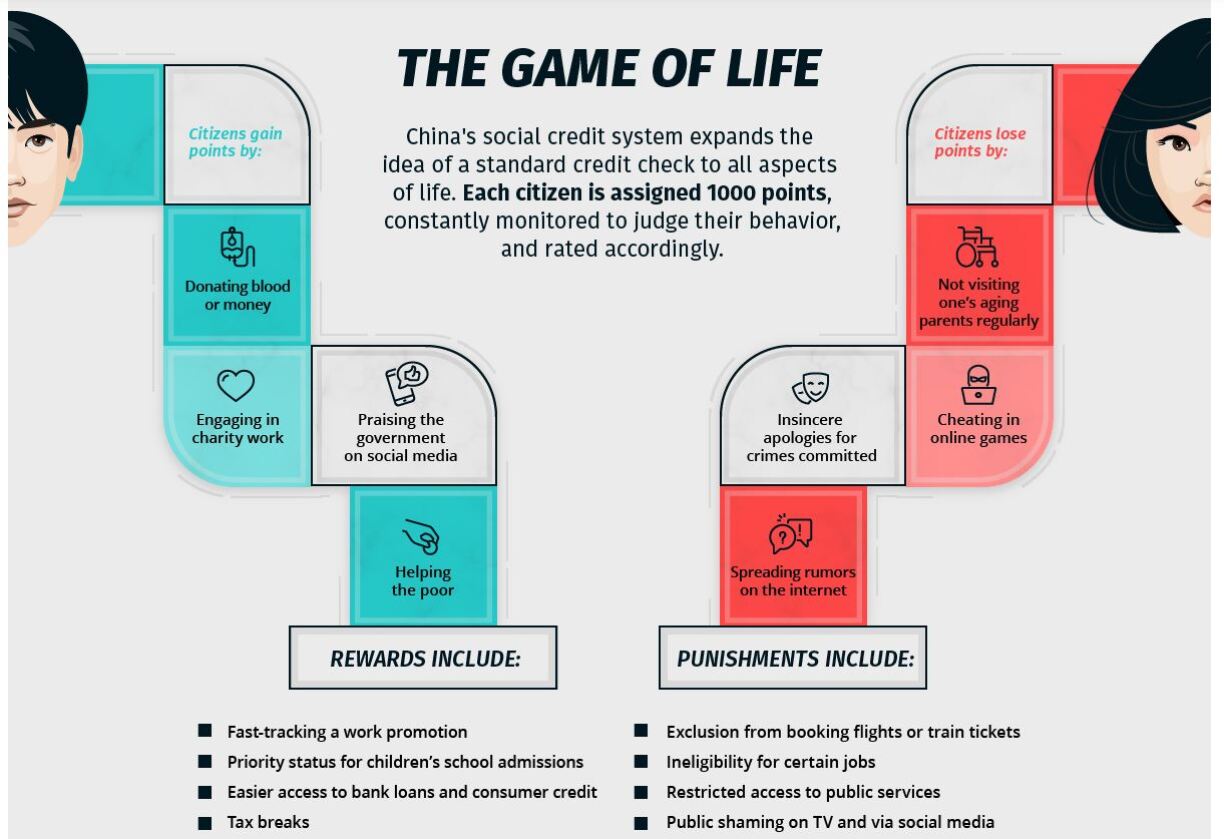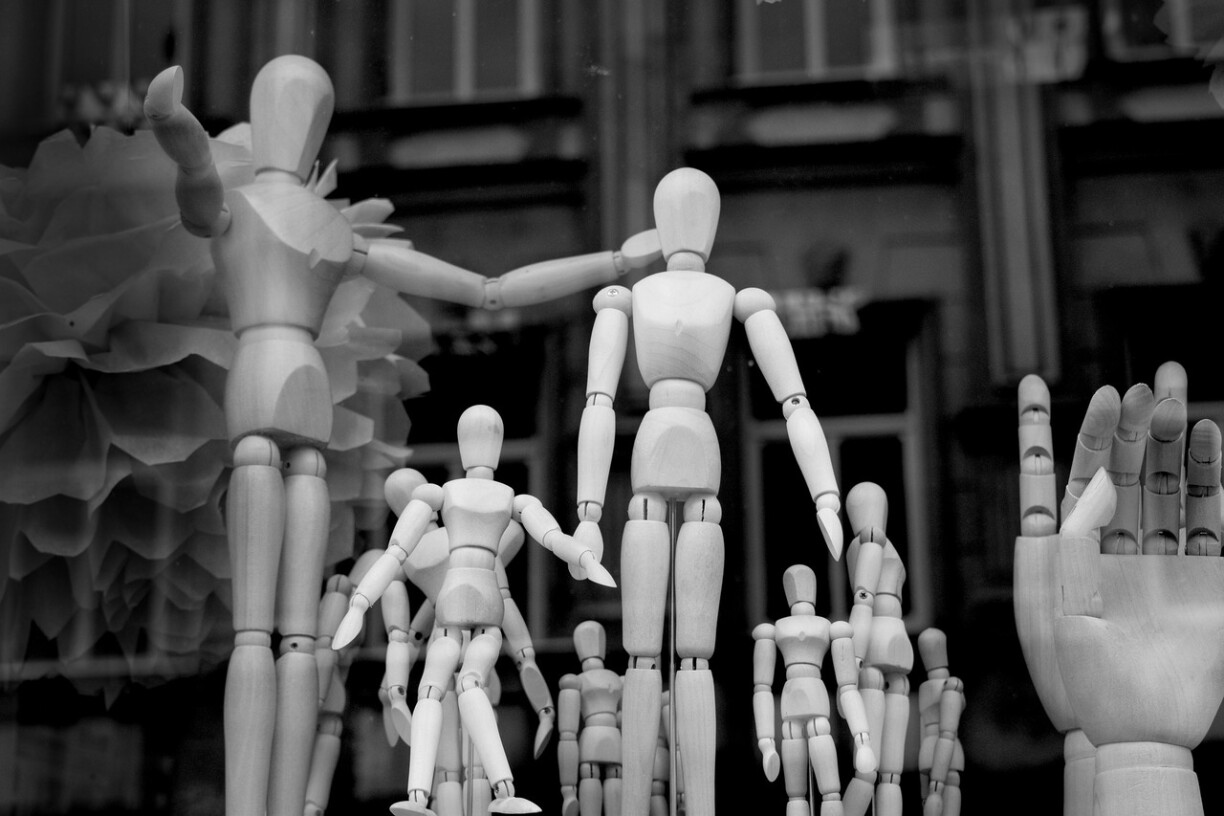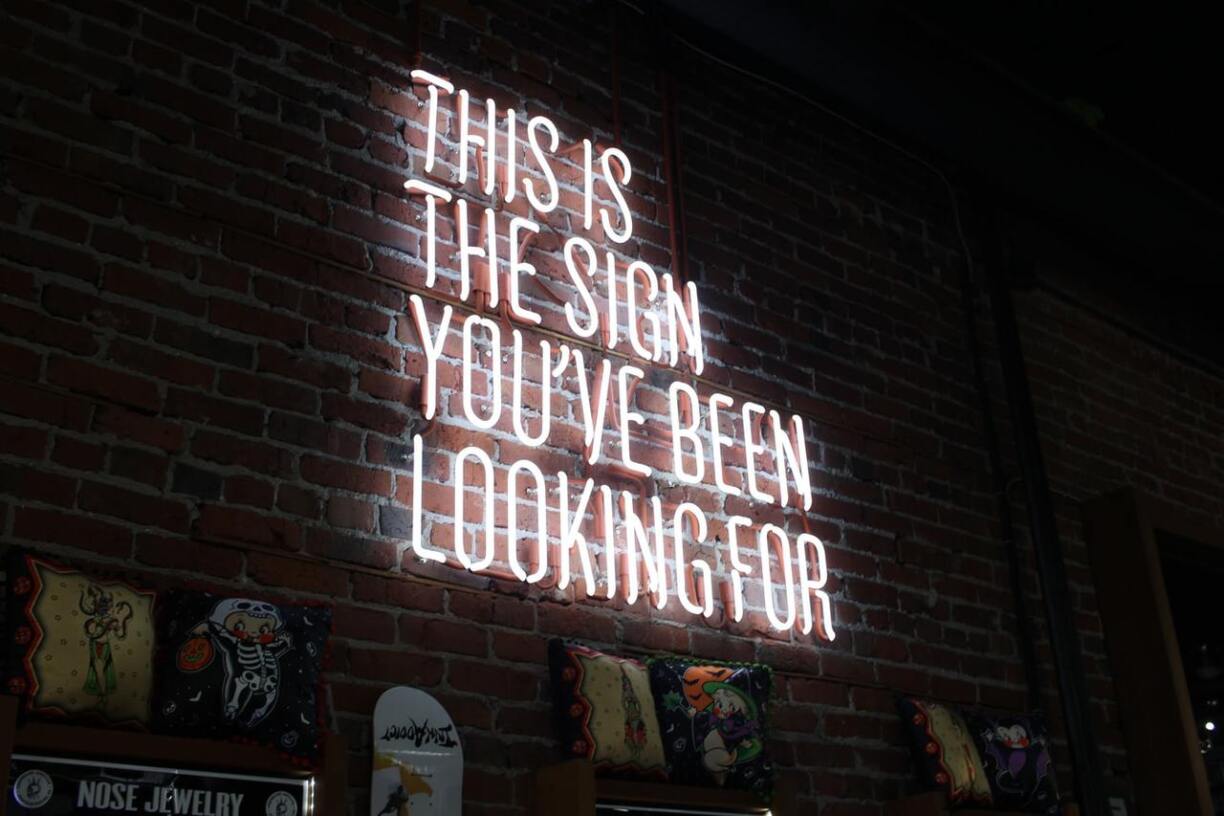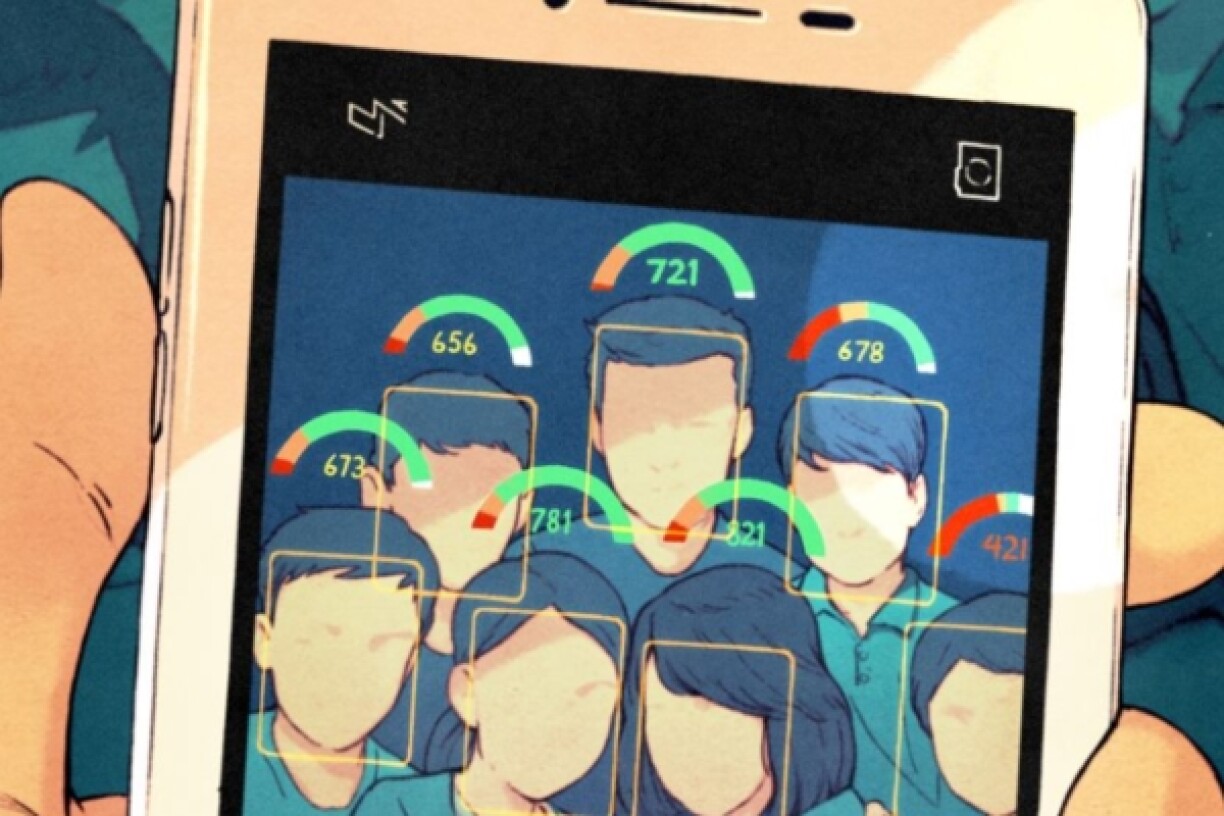
On the surface, this reaction is understandable if hard to believe. Once the system is fully implemented, Chinese citizens will be given a social credit score based on their actions/deeds/behaviours.
For example, failure to pay a court bill or playing loud music in public may result in a low score. This score can then dictate what rights people have.
Those on the “blacklist” would be prevented from buying plane or train tickets, for instance, as well as being blocked from gaining employment as civil servants or being able to progress in certain industries.

Imagine, if you will, a Luxembourg where your social standing is your pass to certain areas - we are not talking about a speakeasy or getting backstage to hobknob with celebs at a Ramstein gig.
One where your entitlement is based solely on social grades and not on your capabilities. If the way you are as person is directly correlated to how you can pass as being part of an elite.
And while we are at it, how many of the so-called elite would remain so if such grading were applied?
OK, this premise is a touch Charlie Brooker but is it really that much of a leap?
Are there not already many social strata in place in Luxembourg? There’s an underlying class system that has created an underclass and has begun to gentrify certain locales of the City Centre and the wider regions of the Grand Duchy.
None of these are particularly insidious yet they are creating cabals of society where a split is forming a crack that may be too wide to bridge. Even with a substantial EU subsidy.
There are increasing populaces formed from pockets of people that become stuck in a system that appears to reward the arrogant and impatient. Finance versus Service industries. Public versus private.
If social credit were to truly reward those that were ‘decent’, ordinary folk wouldn’t the more selfless be the more socially ‘free’, would these people be theleaders, the influencers, the asp and ins-irational?
Or, rather would this simply become a way to shape and mould a restless public?I’d say it is only a hop, a skip and a jump away for similar approaches to be put in place in many of the world’s supposed 1st worlds.
- ‘Digital dictatorship’ -
An Orwellian system predicated on controlling virtually every facet of human life with these so-called ‘social credit scores’, is a risky proposition when you consider the western distrust of technology and surveillance. And how would this ‘grading’ be carried out exactly?
In China, this is done so by using a ‘futuristic algorithm’ (big data distillation) to compile people’s social media connections, buying histories, location data, and more into a single score dictating their rights and freedoms.
It is carried out by a very large, very super, very scary computer, one as large, as say...a data centre in Bissen.
The government can supposedly analyze footage from hundreds of millions of facial-recognition-equipped surveillance cameras in real time, and then dock you points for misbehaviour like jaywalking or playing too many video games, spitting, public indecency, affray.
Gambling.
Bad choices.
Online bad-mouthing.
Digital profiling is already in play in Russia, The UK, America...and America has operated on an elitist approach emboldened by the American Dream. That dream is not available to all. Though the chance for it to be so is what the foundations of America have been built on for centuries.
- Ethnography -
Juxtaposing a Chinese system into a Luxembourgish society far removed from such practicalities of social credit is quite a step, granted.
But look at the factors in play, Luxembourg is arguably at a turning point where the population is at it’s largest and is, at peak times, saturated with exactly the multi-culti melange it advertises on.
Quite how such a mix of backgrounds and histories would come under such an all-pervading umbrella is so mind-boggling that it could not possibly work here.
Could it?
Some of the suggested criteria for ‘checks’ includes:

If we can be glib;
Thrown some rubbish from your car? No more tram for you.
Speeding tickets mounting up? Auchan fidelity card revoked.
Parking fines stacking high? Better buff up that resume to sidestep the initial paper sift.
Completed some more nefarious criminal things...well, perhaps your access to Luxembourg is denied. Or your car is disabled for a number of weeks.
Kicked a dog? Aside from the public abuse, you will suddenly feel incredibly ostracised.
Partied too loud? Maybe no more parties for you Fun Bobby -your ‘fun license is withheld’?
- “Exceptional Creditworthiness” -
It seems to follow that any oppressive regime that involves bending the free will of the people to meet a set of guidelines proffered by the state will result in an intensifying crisis of public morality.
The dichotomy of giving up some privacy if it means a significantly higher degree of security and certainty is a real one. At present Luxembourg sits on a fence between security and surveillance, not wholly comfortable with being watched and not happy at an apparent lack of action from ‘authority’.
The Chinese are being ‘sold’ this new social credit system as a national project to boost public morality through fighting fraud and crime and combating what is currently seen as a nationwide crisis of trust.
Through this, people are expected to avoid “uncivilised” deeds, such as spitting or littering in public.
This “credit-worthiness” or getting a good “credit” score (but in the moral, as opposed to the financial sense) is an affectation, then, is it not? Are these benchmarks simply expected behaviours of an atypical person?
There apocryphal story linked to this myth, is driving a herd to be pliant through the fear of personal and interpersonal social collapse – a person, despite being qualified, cannot secure a job, because of past record of fare dodging on trains.
- Blacklists and Red Lists -
This is essentially a proposed Companies House of Humans. Where your minor transgressions are collated and ranked. These ranks will then be applied to your social score and then your ‘allowances’ would be adjusted to reflect your standing.
One day, you’re a fully-fledged member of the elite, and the next, you’re relegated to ‘plebeian’.
These relegations may be for a series of minor infractions. And when you break it down like this, to the brassiest of tacks, would such a punitive system be that bad?
Is that not exactly what the mob are calling for? Those that are ‘bad’ should be publicly flogged, so why not digitally too?
If we take drunk-driving, speeding, as examples (addressed in a previous editorial here) there are many who call for naming and shaming of those who can get away with it - i.e those with influence. If that influence were to be stripped away the same, then is all the more apparent, is it not?
To enforce these punishments, it is likely that a government (the Chinese in this instance but please still juxtapose) will begin sharing blacklists with technology platforms. That way, people on them can’t do things like book flights or buy train tickets online - this could extend to other frivolous extremes....food...water. Local governments are also asking social media companies to help orchestrate public shaming initiatives.
In the southern city of Nanning, a social media app Douyin (the Chinese version of TikTok) has partnered with the local court to broadcast photos of blacklisted people between videos, like a digital mugshot (source: theconversation.com).
You can see where this type of thing can lead.
How long would it be before an individual were pressured into voting one way in order to reduce or even escape punishment and restrictions?
- History repeating -
General Mao’s Cultural Revolution, when the Chinese government punished intellectuals and burned books saw family members informed on each other. Children, seen as government property instead of members of the family, were forced to name their parents for punishment to protect themselves from persecution.
There were groups of informants identified in workplaces, at schools, and in public organizations. All of these informants were responsible for classifying people. If people were classified as “Good Communists”, they received jobs, statuses, wealth and education.
Where else in recent history have we seen similar schemes. Not too far from Luxembourg’s borders, as it turns out.

- Outside the Grand Duchy -
So, if there are points docked and restrictions made on travel, how many of Luxembourg’s workforce would be prevented to actually work in the country?
Cambridge Analytica, Russian meddling, Snowden’s reports, Brexit, Assange...Trump’s penchant for Tweets.
Misinformation, deep fakes, discrediting of viable sources...it seems many world leaders are already experimenting with their own versions of social credit, and some have designed programs that do give individuals a personal numerical ranking.
These initiatives largely rely on mass surveillance or supercharged artificial intelligence, and many citizens may not even know they exist as they gather details silently and secretly through keystrokes and cookies.
Are we already unwittingly engaged in the first stages of this social conditioning process?
Let’s remember this remains conjecture, half-thought out ideas, and a smattering of paranoia.... or is it?
There will be there will be forms of data collection, such as increased facial-recognition elements if the government can persuade people to use that more,” says Yu-Jie Chen, a Taiwanese human rights lawyer and post-doctoral researcher at the Institutum Iurisprudentiae of Academia Sinica.
How will people live, work, and grow in this type of world? The reality is that anytime a system attempts to “classify” its people or resources, there are bound to be errors.
People will establish a kind of “accepted” norms. Everyone will strive to abide by these norms for fear of persecution. Instead of striving for originality, ideas, and free-thinking, people will instead go with the herd. They will perform their best within the “established” norms.
The killer question is, what can you do to get off the list, whether there in error or if entirely justified?
There seems to be an enormous importance being place on people being essentially good. When any commute, any trip to the supermarket, any casual glance at a thousand simultaneous transgressions points to the opposite.
Even those that are too ‘woke’ to be broke are virtue signalling wannabe perfect folk.
“Do unto others as you would have them do unto you” Luke 6:31 and Matthew 7:12.
Instead of keeping up with The Jones’s you’ll be dobbing them into the blinking red lights hanging from the sky, then skipping off to swipe your charts and see if your stock has risen.
Full disclosure: I would like to think that I am an OK person. An average person. Plenty of faults but passable. Just.
But that will not be enough on a credit system driven by unobtainable levels of perfection and married to impossible to maintain standards of care.
I am late to pay bills. Disorganized. Secretive. I’ve had a number of parking and speeding fines. Have skipped paying for public transport - not an issue from next year on, and have even eaten my own kids Easter Eggs.
I have a fair idea how far from social credit stretches.
Do you?

Stephen Lowe is a freelance journalist, editor with RTL Today, a freelance DJ on Eldoradio and a short film director/producer.